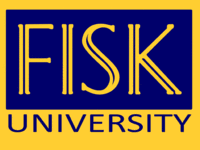Fisk University, founded in 1866, stands as one of the most historic higher education institutions in Nashville, Tennessee, and the United States at large. As a relatively small university with a deep connection to African American history and culture, its reach has always exceeded its size. With a tight-knit community of scholars and a student body that's modest in number, Fisk offers a uniquely intimate educational experience within the context of a historically black university.
Set apart by its significant contributions to civil rights and social justice, Fisk University has an illustrious legacy that includes the Fisk Jubilee Singers, whose international tours in the late 19th century helped to raise funds for the university and introduced the world to spirituals. This storied university also maintains a strong emphasis on research and leadership, with its interdisciplinary Fisk-Vanderbilt Master's-to-PhD Bridge Program, designed to significantly increase the number of underrepresented minority students who earn Ph.D. degrees in STEM disciplines. The University is also home to the acclaimed Fisk Race Relations Institute, which has been at the forefront of scholarly research and dialogue on race relations since 1944.
In terms of commendable achievements, Fisk University boasts an impressive lineup of alumni, including W.E.B. Du Bois, Ida B. Wells, and John Hope Franklin, who have left indelible marks on the tapestry of American history. The institution is also respected for its role in education and the arts, which is exemplified by the renowned Fisk University Art Galleries hosting the Alfred Stieglitz Collection of modern American and European art. Noteworthy academic programs at Fisk also include its top-ranked physics department, which is known for groundbreaking research and a historical precedent of producing the highest number of African Americans with Ph.D. degrees in physics.
The journey has not been without its challenges for Fisk University, as with many historically black colleges and universities (HBCUs). Financial stability has been a long-standing issue, leading to occasional accreditation concerns and budgetary restrictions that impact student resources and faculty recruitment. Additionally, Fisk faces the challenge of infrastructure modernization, needing significant investment to preserve historic buildings and integrate cutting-edge technology to stay competitive in today's educational landscape. Despite these challenges, Fisk's commitment to academic excellence and cultural preservation continues to burn bright, illuminating paths of success for future leaders.



